A Camden cafe has launched a monthly series of Palestinian embroidery workshops after a sell-out event.
On 6th June, Café Palestina in Kentish Town, provided participants with the opportunity to learn about taṭrīz embroidery at their ‘Tatriz, Tea and Cake’ event.
Led by educational group Tatreez & Tea, the workshop offered an insight into the cultural significance of taṭrīz (or tatreez; Arabic: تطريز ), with traditional embroidered garments displayed around the event space and informational booklets providing further detail about the centuries-old craft.
The hands-on event fostered the communal ethos of taṭrīz – people came together from across the city to hone their cross-stitch skills, share ideas and sample the complimentary tea and cake.
Nandita Dowson, director of Café Palestina and human rights charity Camden Abu Dis Friendship Association (CADFA), said: “Tatreez is a long tradition in Palestine that is under threat, like a lot of old things are under threat.
“We knew this was a good time to bring people together. What we wanted to do was positive things, to help people see what they have in common and what differences they have in positive ways.
“I think it challenges stereotypes and builds really strong, human feelings.”
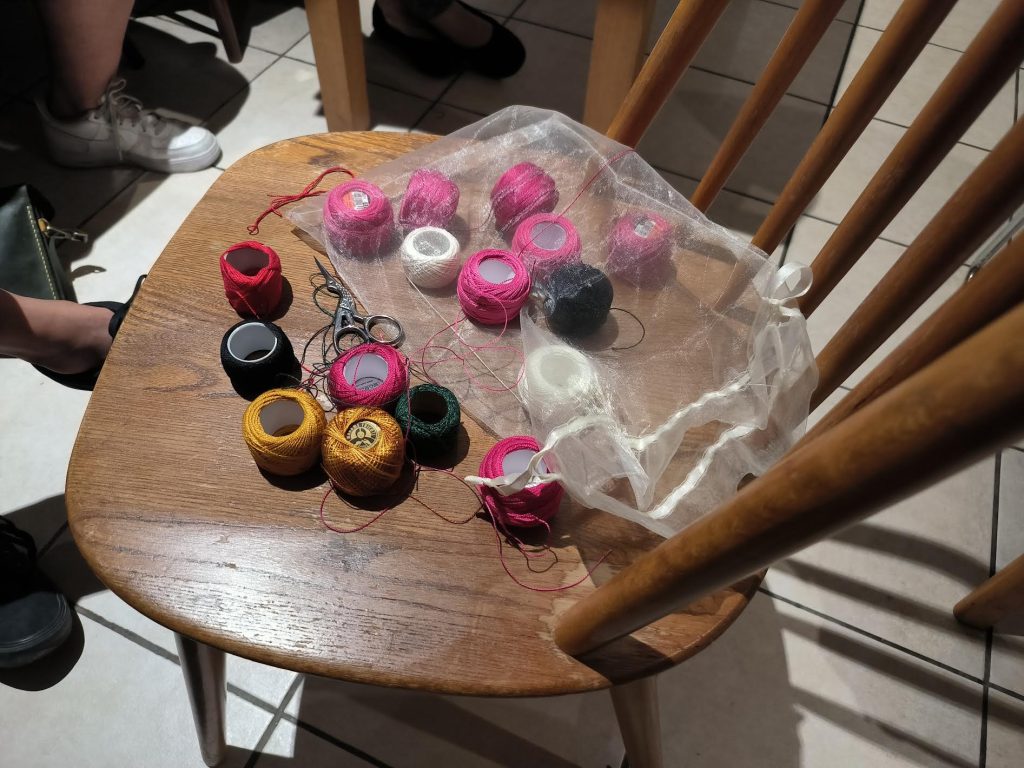
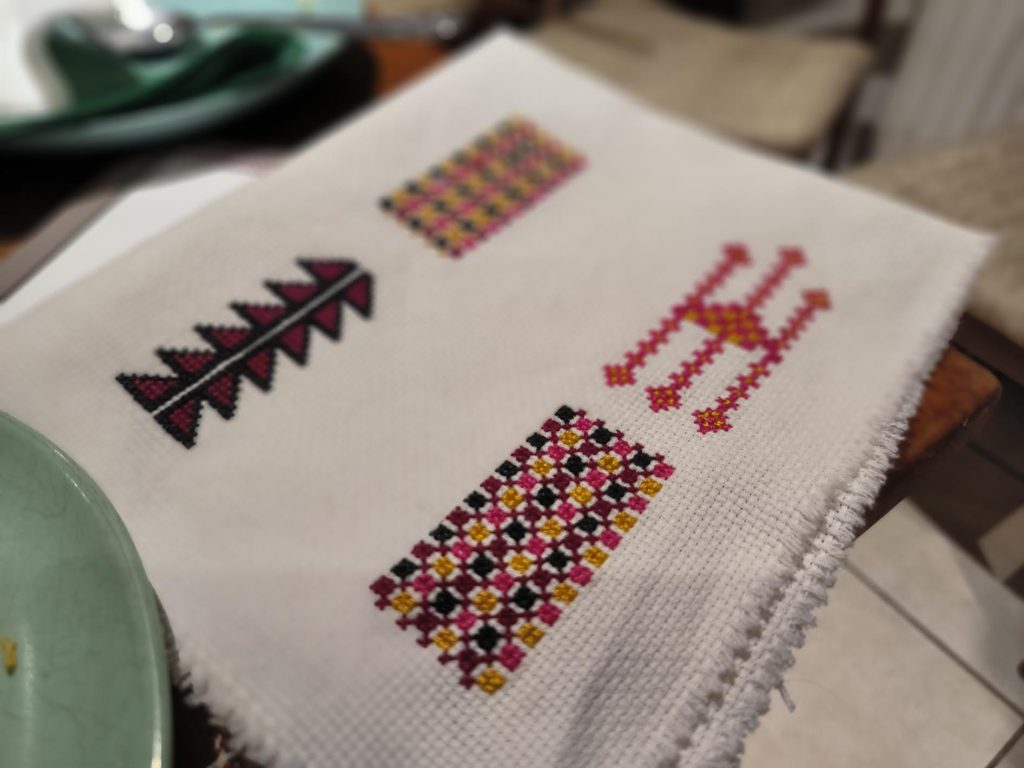
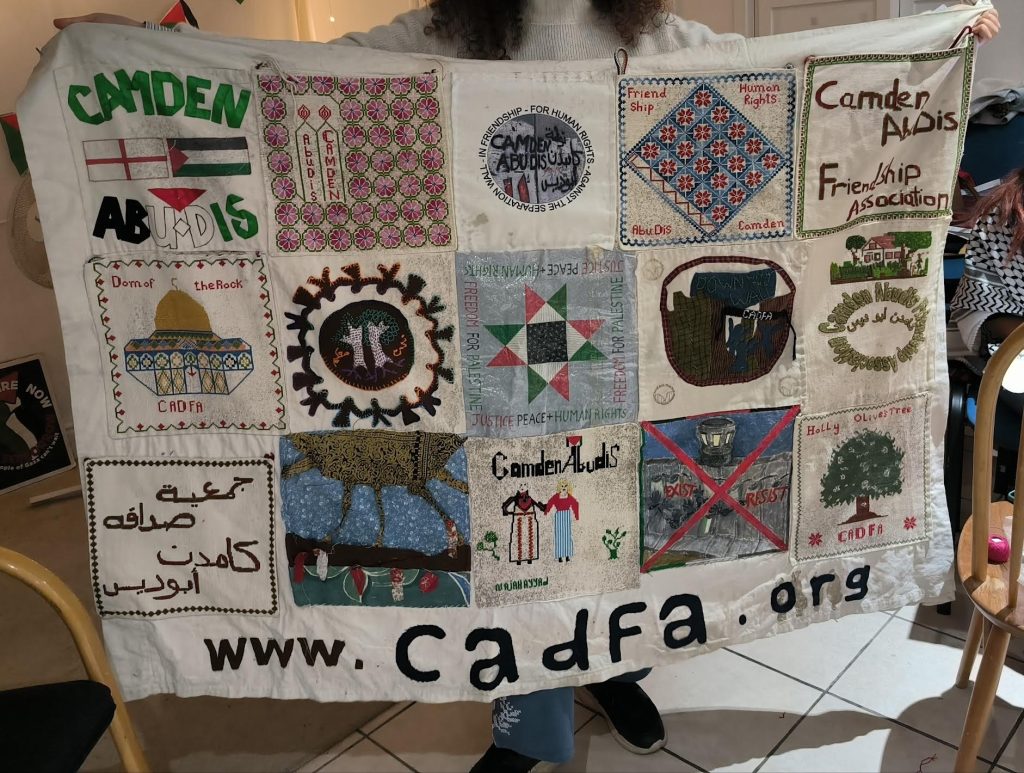
Tatreez is a form of embroidery that originated more than 3,000 years ago in rural Palestine, and has since become a symbol of national identity.
The craft involves threading a series of coloured threads in different formations that often symbolise area-specific codes and events.
Taṭrīz has become essential in preserving the Palestinian heritage and has been described as a form of ‘soft rebellion’, underscoring the resilience and sense of community that is inherent in Palestinian culture.
The use of tatreez was dispersed to other areas after the Nabka of 1948, when 750,000 Palestinians were displaced following Isreali military advances.
Since then, it has been used both practically and for political statements – embroidered slogans of the ‘Intifada Dress’ were created as an act of defiance during the First Intifada period between 1987 and 1993, while modern-day schemes like the Tatreez Embroidery Project provide economic opportunities for displaced Palestinians.
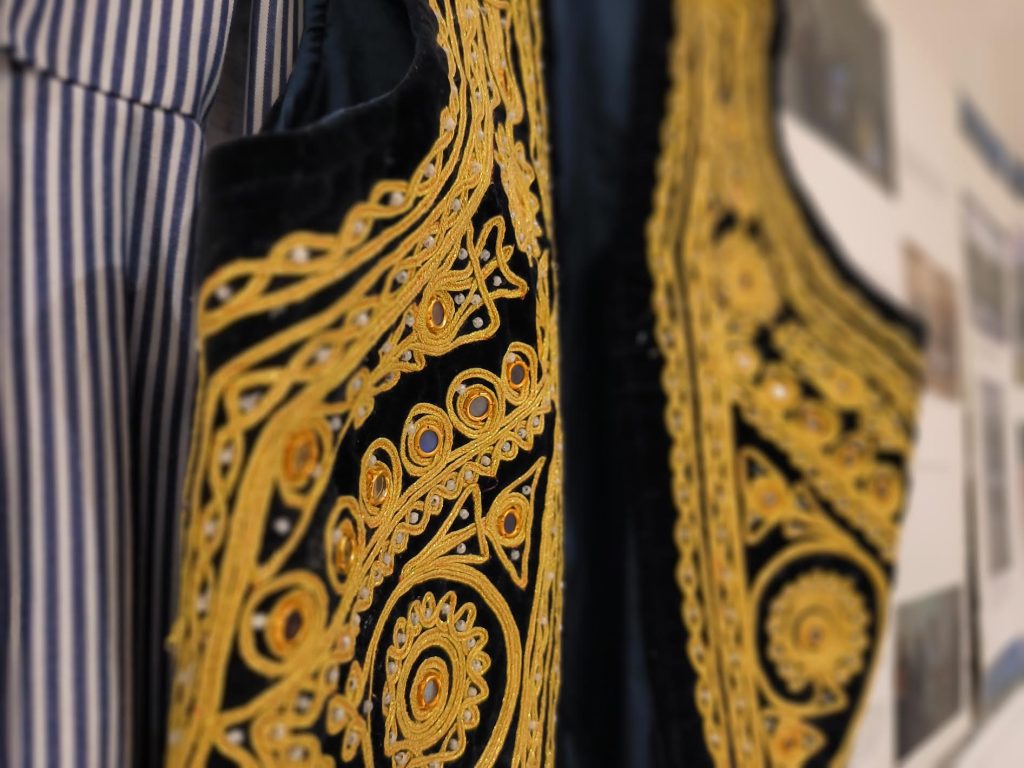
Since 2017, Café Palestina, in conjunction with CADFA, has served as a café, social enterprise, and crafts and produce shop.
Business director Nandita Dowson’s work with CADFA and Café Palestina began when she first met her husband, who is Palestinian, while they were both studying at university.
“I grew up knowing nothing about that part of the world. My understandings were from the people around me and were completely opposite to what they are now,” she said.
“I had to learn about what was going on, and I was unbelievably shocked. I’m always really shocked, as I think a lot of the world is right now, because a lot of the underlying dynamics are sort of out there to be seen.”
Café Palestina hosts a variety of events and activities that work to promote the Palestinian culture, from weekly vegan supper clubs, to Arabic classes and poetry nights.
“The café was partly meant to raise money to keep CADFA going, but it was also partly to put the name of Palestine on our high streets, to work out how you build bridges that people can walk over, to explain things that hadn’t been understood before,” said Dowson.
“It’s about Palestinian food, Palestinian crafts, an extension of the same thoughts that CADFA has, really, to learn about other people as people and, you know, respect that there’s a culture there.”
CADFA works to promote the human rights of Palestinians and support the ongoing relationship between Camden and Abu Dis, a Palestinian village in the West Bank.
“What we do is find any sensible basis in which we bring Palestinians and people from here together, so they can get to know each other as human beings,” said Dowson.
Due to popular demand, ‘Tatriz, Tea, and Cake’ will now take place on the first Thursday of every month, offering participants the opportunity to leave with handmade pieces of taṭrīz embroidery and a deeper understanding of the Palestinian heritage and history.
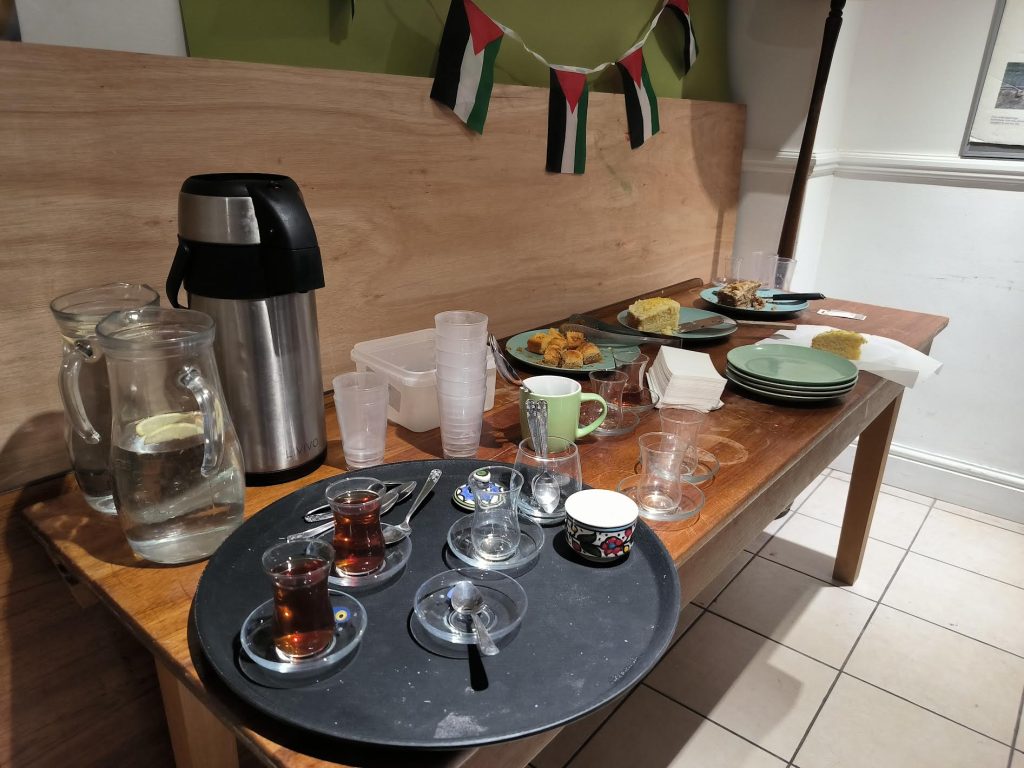
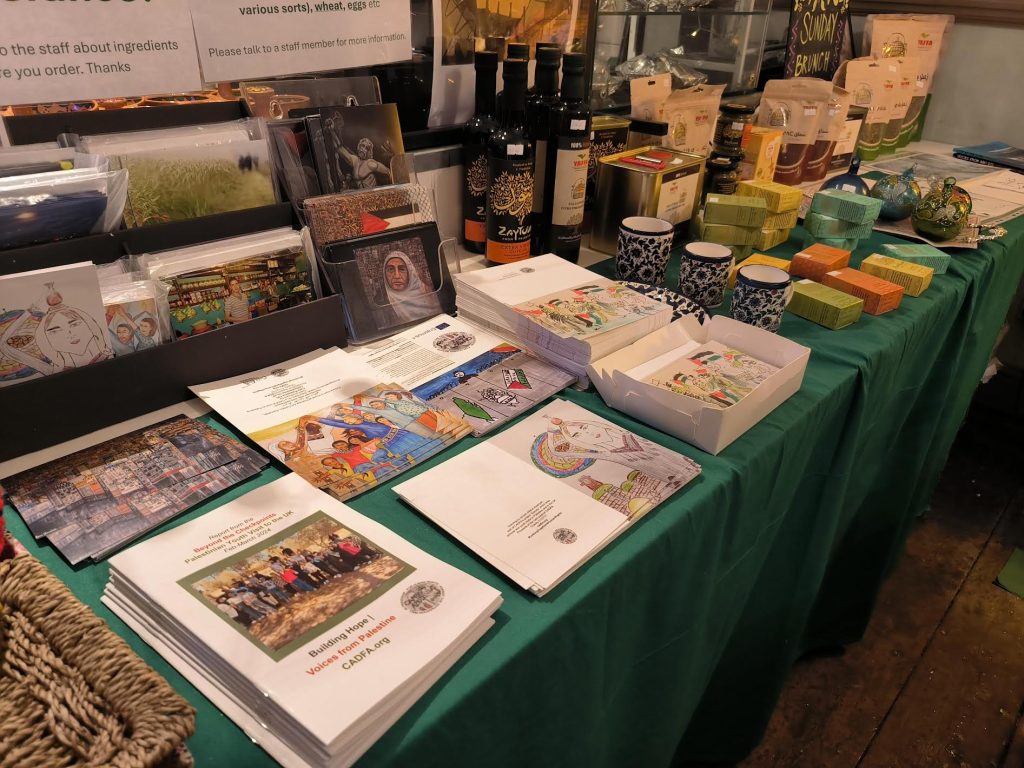
For further information, head to https://cafepalestina.co.uk or check them out on Instagram.
All images: Cressi Sowerbutts

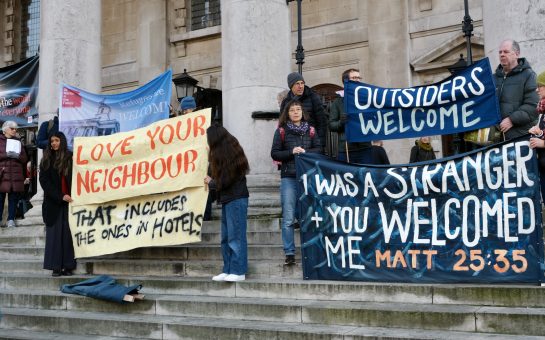

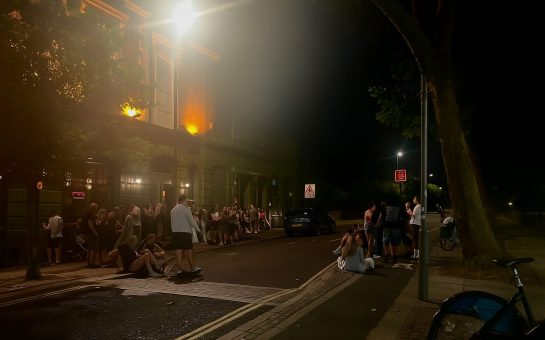
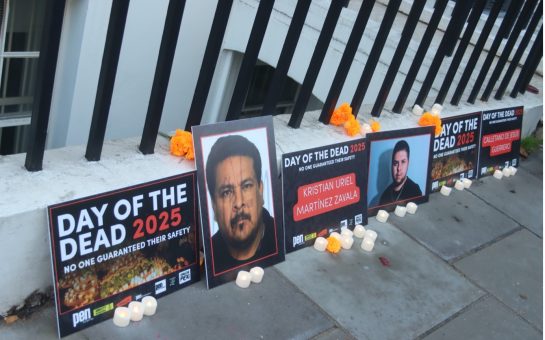
Join the discussion